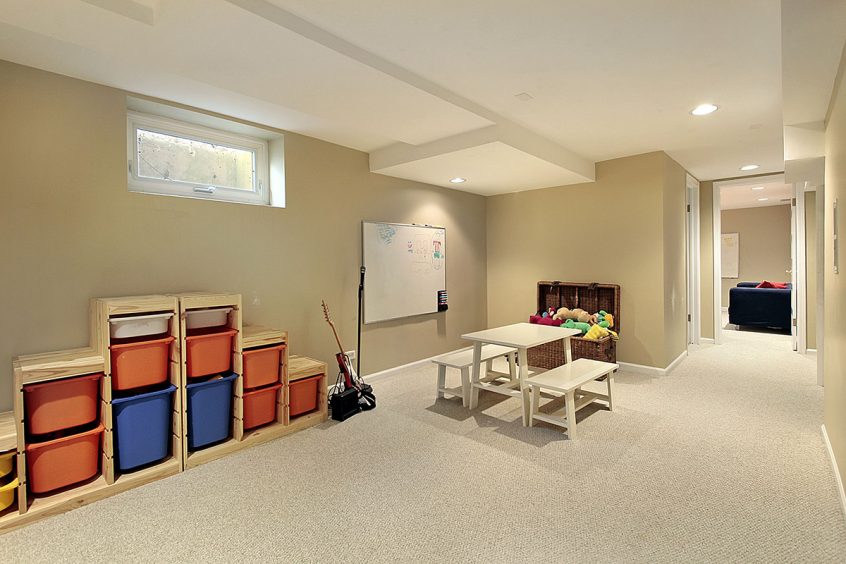Once, basements were considered damp and dark places, at best used for storing vegetables and other groceries. Then, living in basements was not an option. Today, the situation is quite the opposite. Basements are fast turning into multipurpose spaces with pool tables, media centers, childrens’ toys, saunas or flats. To serve these new purposes, the construction of basements had to adapt accordingly.
Any residential space must meet some elementary conditions. To its inhabitants, it must provide comfort, satisfaction and safety. But this is not often the case when it comes to wine cellars. As basements are in direct contact with soil, the indoor temperature remains unchanged throughout the year and tends to equate to the average temperature of its environment, varying between 10 and 12 ° C. This is decidedly too low for satisfactory living conditions.
Home cinema in the basement? An excellent choice for cold winter evenings.
In transforming our basement into residential space, we should very strictly observe a basic rule: the basement must turn into a bright, dry and energy efficient space. Unfortunately, the soil’s thermal insulation properties are simply not good enough. If we do not intend to waste too much heat through walls, our basement will need additional thermal insulation. Why? Because heating your basement may well cost you as much as 20 percent more that it costs you to heat your living room.
Basements as residential spaces are associated with a fair share of problems, among them high humidity, posing a health risk and causing various diseases. In order to avoid this, basements must be regularly ventilated. This, however, is not always a simple task. Due to constant and low temperatures in a conventional basement, it can only be ventilated effectively when the ambient temperature is lower than the basement air temperature. Otherwise, we will achieve the opposite of the desired effect, as after ventilating, our basement will be even more humid as before. This effect is similar to taking an icy bottle of water from the freezer in summer. As the bottle’s cool surface comes into contact with the surrounding warm air, drops begin to accumulate. Unfortunately, with the invasion of warm air into our basement, we will just as quickly notice moisture formation on its cold walls.
However, if a basement is thermally insulated, air exchange and, consequently, ventilation with air from other residential premises is not problematic. And in such basements, it is easy to achieve comfortable living conditions.
How to transform our basement into residential space?
According to the elementary rule of thermal insulation, the most effective way towards a residential basement is to apply thermal insulation on the external side of the basement. Unfortunately, an energy retrofit in older buildings, unlike in new construction where all external surfaces are accessible, can only be performed from the inside.
Throughout the year, the basement’s average temperature is only around 12 ° C. This is far from your ideal living conditions, is it not?
In order to reduce the surrounding soil’s effect on the basement temperature, the simplest approach is to clad the entire basement floor and walls with adhesive panels of thermal insulation. In this way, we prevent the heat flow through walls into the ground and increase the basement’s average indoor temperature to the ideal temperature level of the building.
In this way, we have not only one but two advantages: if we choose appropriate thermal insulation materials to prevent heat losses, we simultaneously solve the indoor humidity problem.
Without major efforts, applying thermal insulation from the inside facilitates better utilization of heat in basements, while also preventing condensation formation on the surfaces of external walls. Consequently, a basement will turn into a much nicer and much more useful space.
We must take into account that due to the cold external walls, condensation could still form between the wall and the thermal insulation. To prevent this, we have prepared some recommendations here.


 +386 7 39 39 510
+386 7 39 39 510 advice@energyshield.biz
advice@energyshield.biz
